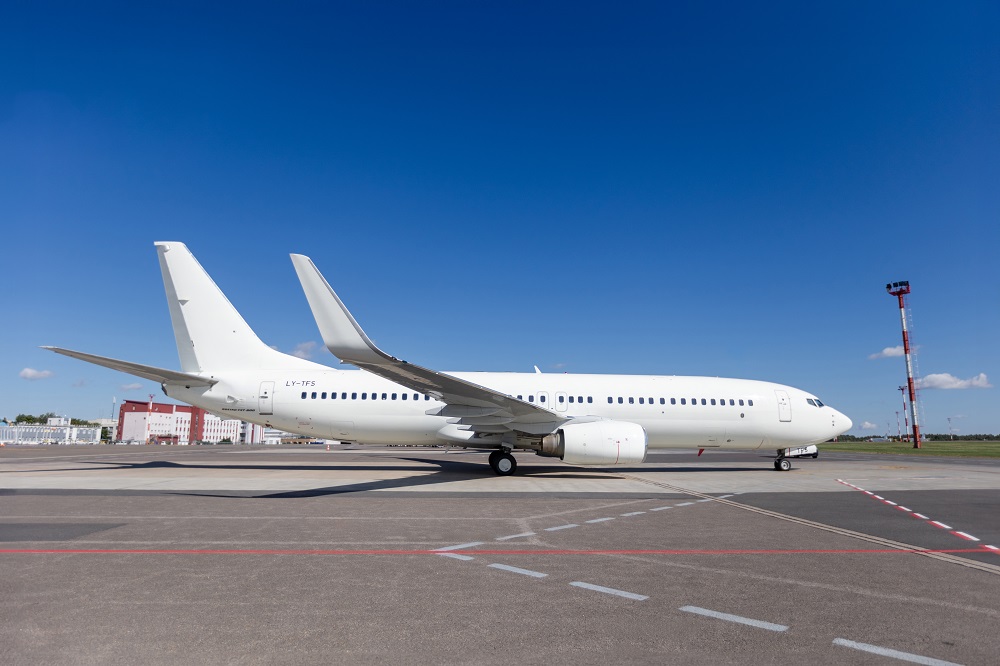As the peak aviation season in Europe came to a close, it’s time to reflect on the challenges the industry faced during the peak and the role of the ACMI sector in meeting the growing demand. Justinas Bulka, Chief Executive Officer of KlasJet, an exclusive private and corporate flight charter company, as well as an ACMI leasing service provider, takes us on a journey to explore the ups and downs of this busy period. In this article, he will delve into the challenges and successes faced by the aviation industry during this recent time.
Summer Demand Surge and Challenges in Aircraft and Crew Availability
Justinas Bulka, Chief Executive Officer of KlasJet, reflects on the recent peak aviation season in Europe, describing it as extremely busy. This observation underscores a seeable recovery in travel appetite among passengers following the easing of COVID-19 restrictions. To put the industry’s performance into perspective, here is a noteworthy statistic. In 2023, a staggering approximately 738,000 block hours (BH) were operated on an ACMI basis globally, encompassing all types of aircraft. This figure represents a two-fold increase compared to the previous year, underscoring the industry’s resilience and adaptability in the face of the pandemic’s challenges.
However, the growing demand for air travel also brought significant challenges. Bulka notes a shortage of available aircraft and qualified crews in the market during the peak season: “This shortage, perhaps increased by the pandemic’s earlier disruptions to the aviation workforce, posed a huge obstacle to meeting the escalating demand. As a result, the ACMI sector became a critical player in addressing these challenges, balancing between demand and supply, and contributing to the industry’s adaptability in a post-pandemic world. However, in this period demand for ACMI was higher than the supply”.
ACMI Operations Exceeding Expectations
In 2023, there were a total of 420 aircraft available for ACMI operations worldwide, with 290 of them falling into the category of narrowbody aircraft. However, the industry found itself stretched to its limits during the peak season. “The demand we faced, was surpassing even the most optimistic expectations. Of course, partially it was driven by long-term partners who entrusted us with more hours than initially anticipated, but alongside we received a significant number of short-notice requests and gradually it led us to the necessity of declining some last-minute bookings. Even though, we even provided VIP fleet aircraft to help airlines with their AOG situations, it did not fix the situation completely”, – says Bulka.
Even within the exclusive VIP fleet segment, unique by its exclusivity and luxury, KlasJet was unable to accommodate all incoming requests. “We began the season with a fleet of 5 luxury aircraft, which marked an increase of 2 aircraft compared to the summer of 2022. This expansion was a strategic move to meet the expected surge in demand for aviation services. However, despite the fleet expansion, we found ourselves far exceeding initial capacity projections”, – shares Chief Executive Officer of KlasJet and marks that VIP segment of aviation services experienced a year-on-year increase of approximately 35% during the summer of 2022/2023.
Matter of Timing and Changing Summer Trends
According to Bulka, usually, orders for the peak aviation season start to materialize as early as the first quarter of the year, making a clear distinction between two types of approach within the industry: “Proactive industry players come as early as possible and are keen to secure their bookings well in advance. These participants in the aviation market already recognized the value of early planning and ensured they had the necessary capacity reserved for the summer period. On the other hand, others tend to apply a wait-and-see approach, holding out for last-minute solutions. As ACMI providers, we are trying to accommodate different customers with various needs and try to stay flexible in any situation. However, the number of bookings received in advance is increasing. In response to the capacity shortages experienced recently, travel planners and industry participants learned from the challenges of the previous year and sought to avoid last-minute uncertainties”.
Chief Executive Officer of KlasJet also touches upon the evolving trends observed during the summer season: “The cooldown period in autumn, when traveling typically slows down, occurred later than expected and compared to the previous year. This delay suggests a continued enthusiasm for travel even as summer officially transitions into autumn. Holiday destinations remained bustling until the very end of October, indicating a prolonged period of travel activity. Talking about the most popular travel destinations, the Mediterranean region remains unbeatable. Another interesting trend – Northern European countries climbing up to the top destination list. And someone says that global warming does not exist”.
